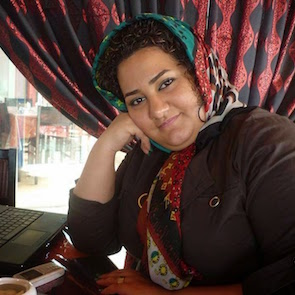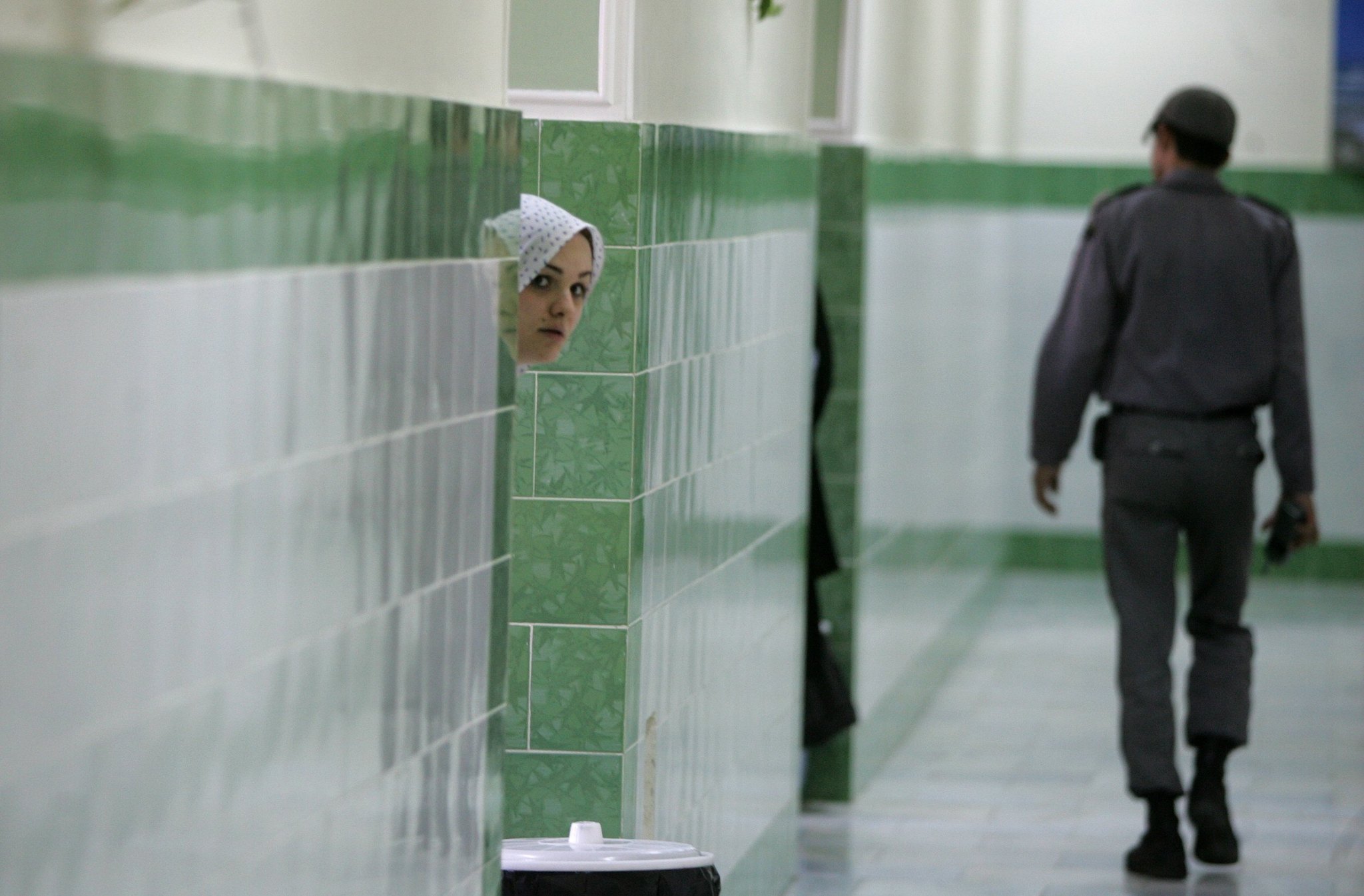
Atena Daemi
Activists and artists hit by new wave of harsh sentencing by Iran judiciary
Atena Daemi sent out a letter from Evin Prison on May 25, 2018.
“I was due to be released today after almost five years behind bars. But everyone knows that as long as the Islamic Republic exists, Iran is a prison everywhere. But I am free, so much that they keep thinking they have to imprison me with a new sentence. These sentences sound ridiculous to me, even the lashes! … I am free today because being free does not necessarily mean that you should be on the other side of the bars. Every new sentence affirms that I am free.”
Anti-death penalty activist and women and children’s rights defender Atena Daemi was first arrested in Iran on 21 October 2014. Kept in solitary confinement and denied access to a lawyer, she was repeatedly interrogated for 86 days. As a direct result of her peaceful human rights activities, which included, holding peaceful demonstrations in support of the children of Kobane in Syria, opposition to the execution of Reyhaneh Jabbari (who was hanged for murdering in self-defence the man who raped her), and listening to Iranian rapper Shahin Najafi’s protest songs, she was charged with “propaganda against the regime”, “collusion against the regime”, “insulting the Supreme Leader of Iran” and “blasphemy”.
On 21 May 2015 the Revolutionary Court Branch 28 sentenced her to 14 years in prison after an unfair trial lasting only 15 minutes.
In January 2016, Atena Daemi’s case was appealed to Branch 36 of the Appeals Court, and on 15 February 2016 she was released following a bail payment of 6.5 billion Iranian rials (approximately €130,000 at time of writing). On 28 September 2016, based on Article 134 of the New Islamic Penal Code, the woman human rights defender’s sentence was reduced from fourteen years to seven years, the maximum length of the most serious charge.
On 26 November 2016, although there had been no warning that the woman human rights defender would be taken back into custody, security forces raided her family home where she had been living since being released on bail in February, took her into custody and transferred her to Evin Prison.
Since her rearrest, Atena Daemi has been subjected to systematic punitive and psychological mistreatment at the hands of the Iranian authorities.
Following her arrest, Atena Daemi made a complaint against the Islamic Revolutionary Guards Corps (IRGC) regarding the excessive use of force, which included being beaten and the use of pepper spray. However, instead of the allegations being investigated, she herself was forced to appear before the Shahid Moghaddas Court inside Evin Prison and was charged with “insulting the supreme leader”, “insulting state officials”, “spreading lies”, “resisting arrest” and “assaulting the arresting agent”.
On 3 April 2017, in what is seen as a direct retaliation for her complaint, an additional three-month and one day prison sentence that was handed down to the defender and to her sisters for “insulting officers on duty”. The woman human rights defender undertook a high profile 55 day hunger strike to protest the additional sentencing.
In early 2018, she and fellow woman human rights defender Golrokh Ebrahimi Iraee were temporarily transferred to Gharchak prison in the town of Varamin, and were held in a quarantine section. Both women human rights defenders undertook a hunger strike to protest their transfer from Evin prison. On 18 July 2019, the Revolutionary Court in Tehran, in retaliation for their hunger strike, found both Atena Daemi and Golrokh Ebrahimi Iraee guilty of "insulting the supreme leader" and "promoting propaganda against the state" and they received additional prison sentences of three years and seven months (later reduced to two years and one month on appeal).
In December 2019, following her participation in a peaceful sit-in protest in Evin prison to express solidarity against the violent state response to protests in the country, Atena Daemi was put in solitary confinement where she was physically abused and denied medical assistance. She also suffered restrictions on family and lawyer visits.
Expecting to be released in July 2020, on the 7th of June 2020 the prosecutor’s office informed the woman human rights defender’s father that she has been charged with “disturbing order” at Evin prison by chanting anti-government slogans on the night of 11 February 2020, the anniversary of Iran’s 1979 Islamic Revolution. On 2 July 2020, the defender was sentenced by Branch 24 of Tehran’s Revolutionary Court to two additional years in prison and 74 lashes – a particularly egregious sentence as under Iranian Penal Code flogging takes place on the final day of a prisoner’s sentence, ensuring the family and the prisoner cannot look forward to this day as they might.
“I was due to be released today after almost five years behind bars. But everyone knows that as long as the Islamic Republic exists, Iran is a prison everywhere. But I am free, so much that they keep thinking they have to imprison me with a new sentence. These sentences sound ridiculous to me, even the lashes! … I am free today because being free does not necessarily mean that you should be on the other side of the bars. Every new sentence affirms that I am free.”
On the evening of 16 March 2021, the woman human rights defender was transferred from Evin Prison to Lakan Prison in Rasht, northern Iran. No explanation for the transfer was given and the family of the woman human rights defender have described the transfer, a four and a half hour journey each way from her parents’ home, as an exile and an act intended to limit the family’s visitation rights.
On 20 October 2021, the defender’s family announced that Lakan prison authorities continue to withhold the woman human rights defender’s telephone card. She has not had access to her telephone card for the past two months. Her fellow inmates are also threatened and banned from contacting her or her family.
The woman human rights defender has also reported repeated instances of intimidation and humiliation, and has been deprived of her right to work in the prison’s workshop and participate in sport as she does not wear a head scarf as required by regulations in the women’s section of Lakan prison.



